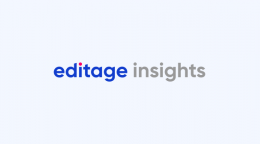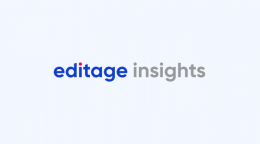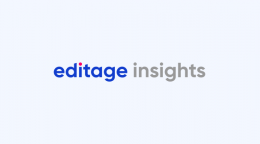He said, she said: 10 Great quotes from experts in scholarly publishing in 2014

2014 has been an exciting year for scholarly publishing, with the introduction of many trend-setting practices, significant discoveries, and innovations. Amidst these times of change, we interviewed experts in the publishing industry from across the world, through the year. These interviews expanded our horizons and gave us interesting insights into various aspects of the publishing industry. We present to you some of the best quotes from our interviewed experts.
This is a very exciting time in scholarly publishing. Now that the “fight” for open access has more or less been won, we are able to move beyond open access and work to create a new ecosystem and infrastructure for scholarly publications and communications.
Dr. Caroline Sutton, Co-Founder of Co-Action Publishing and Director at Infrastructure Services for Open Access (IS4OA), on open access publishing becoming more established and her plans for expanding its reach.
Though Korean journals are SCIE journals, the authors do not consider submitting papers to the Korean journals because of their low impact factor.
Dr. Sun Huh, Deputy Editor of the Korean Journal of Medical Education and Editor of the Journal of Educational Evaluation for Health Professions, on the unique challenges Korea’s scientific editors face.
Are Korea’s research challenges unique? Read the full interview to learn more >>
All scholarly areas are now encountering the sorts of ethical problems biomedical journals have been seeing for many years; no subject discipline should think itself immune. Many journals are not only seeing more problems, the cases also seem to be becoming more complex.
Dr. Irene Hames, an independent research-publication and peer-review specialist and the author of COPE Ethical Guidelines for Peer Reviewers, on the way the industry has evolved with respect to publication ethics.
Learn more about Dr. Hames’ views on ethical problems in the research and publishing industry >>
To improve editorial standards, it is essential to understand the current status quo and obstacles facing journal editors and others in the peer-review and publishing process.
Dr. Lorraine Ferris, President, World, Association of Medical Editors (WAME), on the importance of global cooperation and communication among medical editors to facilitate higher peer review standards of medical journals.
Some scientists, teachers, and students believe that when they publish the paper, they have met their goal and that project is completed. But is publication the very last step for the research work of any project, any institution, or any individual?
Dr. Shuai Yan, Associate Chief Editor and Journal Center Director, Tsinghua University Press, on China's three-stage reform to facilitate the internationalization of Chinese research publication.
Read on to know how China’s organized approach may place it a global scientific force >>
There’s amazing potential here on the frontier of science online; researchers shouldn’t be afraid to explore and to stake out what they want in terms of how people view their work.
Euan Adie, Founder of Altmetric, on the promise the new tool holds.
If you want to make an impact among your colleagues, look especially at the journals that they’re reading and publishing in. If you’d like to reach a much wider audience, consider a multi-disciplinary journal that you may have not paid much attention to before. In other words, think about the readership of the journal and who you want to read your paper.
Dr. Helle V. Goldman, Chief Editor of Polar Research, on how authors should choose journals to publish in.
Read the full interview to get more insights on publishing your manuscript in the right journal >>
Predatory publishers will lie about anything because their goal is to get the money from the author. What they are selling is a quick and easy publishing of your research. The high quality journals take longer to publish articles typically because they go through copyediting and they go through a proper peer review. The predatory publishers are selling speed and easy publication.
Jeffrey Beall, Scholarly Initiatives Librarian & Associate Professor, on how predatory publishers have emerged as the ugly side of scholarly communication.
Learn more about the tricks predatory publishers use to entice unsuspecting authors >>
Disambiguation of the scholarly record will not work without researchers and scholars taking a leading role...Researchers must get involved […]
Dr. Laurel Haak, Executive Director, ORCID, on how the tool is based on the premise that researchers can control the identifiers tied to their body of work.
How can ORCID transform the research and publication ecosystem? Read on to find out more >>
The main pressure is time pressure: authors want their manuscripts published as soon as possible after acceptance. But every stage of the publishing process takes time [...]
Dr. Christiaan Sterken, author of Scientific Writing for Young Astronomers, on the concerns and pressures he faces as an editor every day.
A full list of all our expert interviews is available here.
Note that some of the content is available only to registered users. To ensure that you have access to all of our posts, register today. Registration is free and takes only a minute.
Published on: Dec 31, 2014
Comments
You're looking to give wings to your academic career and publication journey. We like that!
Why don't we give you complete access! Create a free account and get unlimited access to all resources & a vibrant researcher community.














